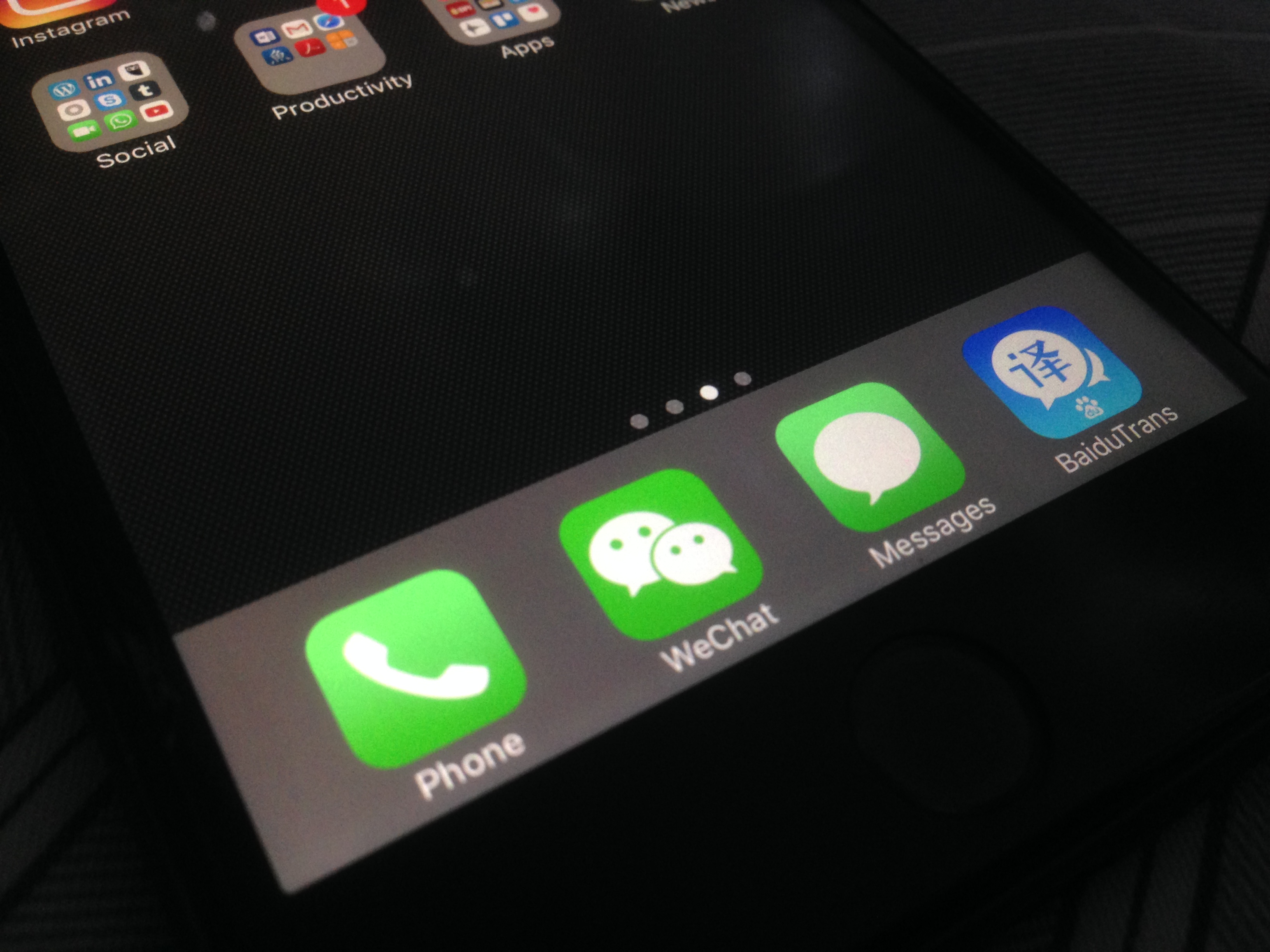Today’s #AtoZChallenge features a social media giant that you might not heard of. With 899 million monthly active users (Q4 2016), WeChat is the king of social media in China.
In my upcoming article in beijingkids magazine, I will discuss which apps first-timers in China should download. At the top of my list is WeChat as it’s such a dynamic app that has become synonymous with what daily conversations in the country are. A piece in the China Daily likened it to a “way of life” for many Chinese.

W is for WeChat
Despite being founded just six years ago, WeChat (微信 Wēixìn, literally “micro message”) has dominated the social media space in the world’s most populous country. Almost everybody is hooked on WeChat, with one-third of its users accessing the app for an average of four hours a day. The average time spent on WeChat is 66 minutes, against Facebook’s 50 minutes.
Indeed, inside the Great Firewall is a thriving “e-cosystem,” and WeChat is a big part of that, with Tech in Asia calling it “the WeChat Universe.” Major features of Western-based social networking sites (Facebook and Twitter: status posts; Instagram: photo posts) and messaging apps (Skype: video call; Messenger: group chats) have been integrated into a mighty one-stop shop in the form of WeChat. But the fun doesn’t stop there.

On WeChat, you can pay cabs and dinner, rent e-bikes, make payments and share money, buy movie tickets, send red envelopes or hongbao… or even make video conferences, transfer files, and set up a community and forum… yes, you can do these things without exiting the app (see Tech in Asia’s infographic below for more).
Harnessing this social media juggernaut is indeed a big challenge for content marketers and businesses in China. More than just for personal consumption, WeChat is also utilized in industries, with 88 percent of its users “[doing] office work or personal businesses.”

Such a powerful application is of course not free from the hands of government censors. A WeChat study has surfaced and claimed that conversations in the app that contain sensitive words are blocked by servers, while a report said photos with sensitive political content are also blocked. But is this really off?
When western democracies were rattled by a wave of populist sentiments that were primarily channeled via social media, misinformation and disinformation, propaganda, or political messages whatsoever were regarded as fake news or alternative facts. However, an opinion piece in Tech in Asia had a view of how WeChat filters misinformation.
According to a 2015 study by the Chinese Academy of Social Sciences (CASS), WeChat blocks “rumors” as many as 2.1 million times a day. It’s hard to say what exactly counts as a “rumor” in WeChat, as the app’s content regulations are coupled with China’s internet censorship policies. However, it’s fair to assume that in addition to politically sensitive content, Tencent has a range of undesirable content to block, from scams to fake news.
The piece went on to say that WeChat created a “Rumor Filter” feature, something that I did not know of prior to reading the article. The “Rumor Filter” is said to fact-check details but how exactly it is implemented or how it stem fake news are unclear. However, the article said that “As WeChat’s user base continues to grow, controlling the threat of fake news on the platform is paramount.”
I noticed though that in many WeChat subscription accounts (akin to blogs), articles can be blocked or brought down when censors deem they contain sensitive materials or sound derogatory.
Aside from censorship, there are issues on the WeChat experience, just like an article in the Global Times listed: a lot of spamming and scamming and excessive selfies *or I should say extreme narcissism, in the same breath as other social media sites.*
WeChat, despite being a young platform, has reached the top and went beyond the Great Firewall so quickly that it struggles to be noticed in other countries.

Will WeChat go head-to-head with Facebook? Tech in Asia calls it as Facebook’s “potential competitor.” But when that happens is the big question. But for now, I must say let WeChat grow further because it definitely makes life in China easier!
This is my last entry for the internet series of my #AtoZChallenge in China. I hope you enjoyed reading my posts about the wonders and drawbacks of China’s mighty internet.
Tomorrow on #AtoZChallenge, we go back to traveling and see an old cathedral situated in one of the demolished gates in Beijing’s ancient imperial city fortifications.
WeChat logo from Google Playstore.
See more of my #AtoZChallenge: Chinese Adventure

Pingback:#AtoZChallenge in China: Zàijiàn (See You Again) – coolkid